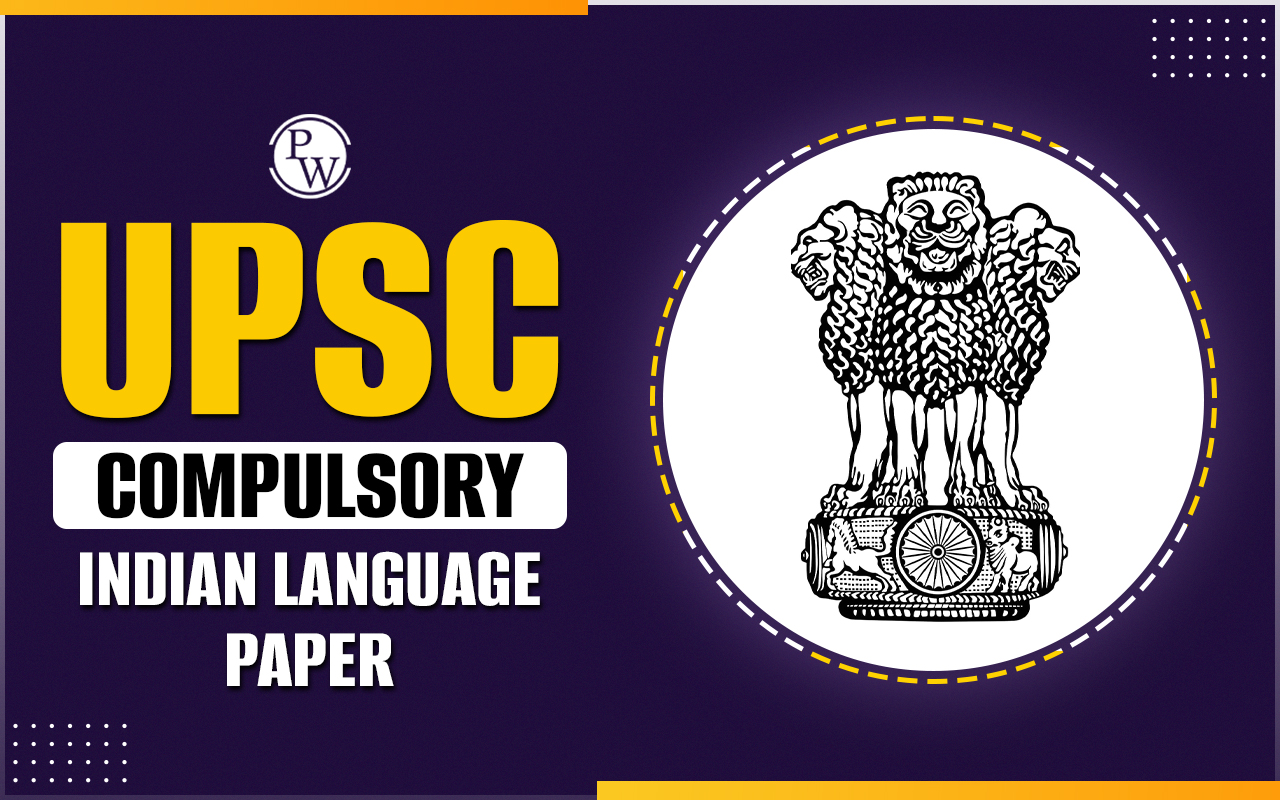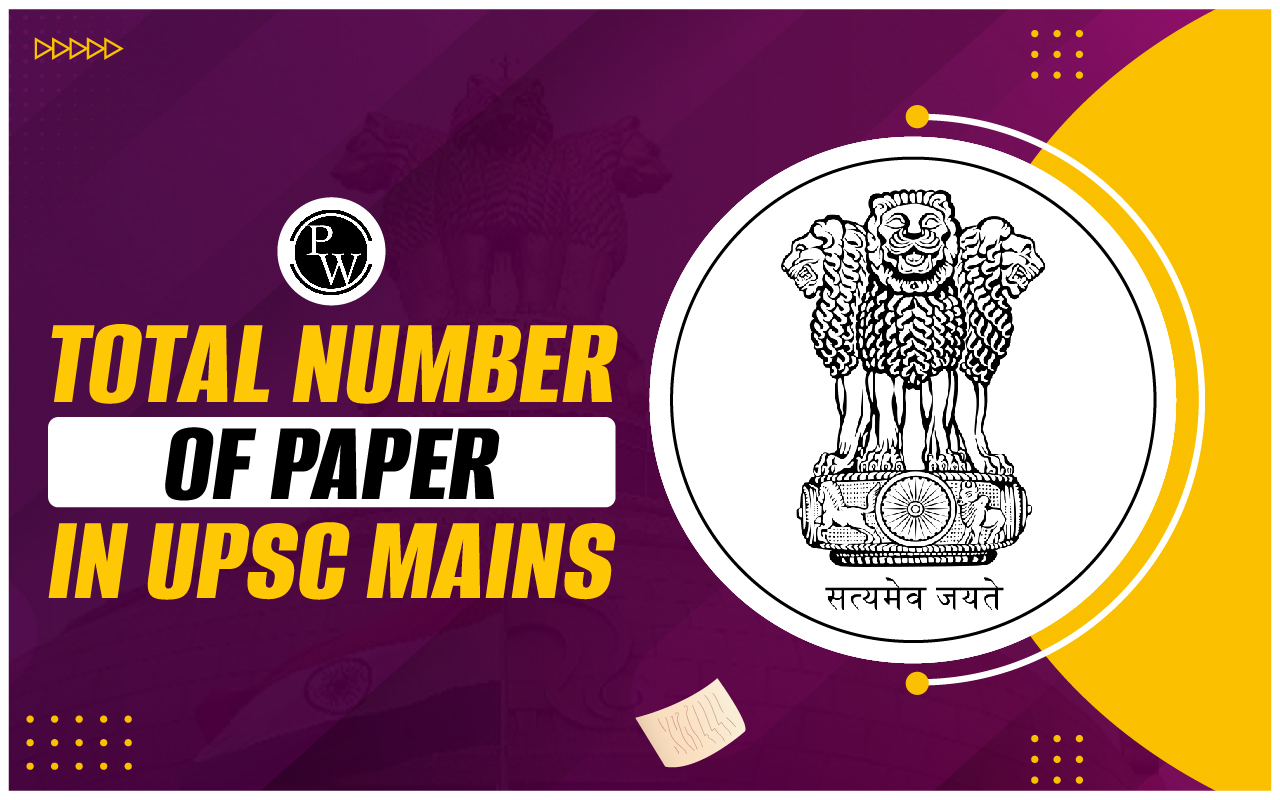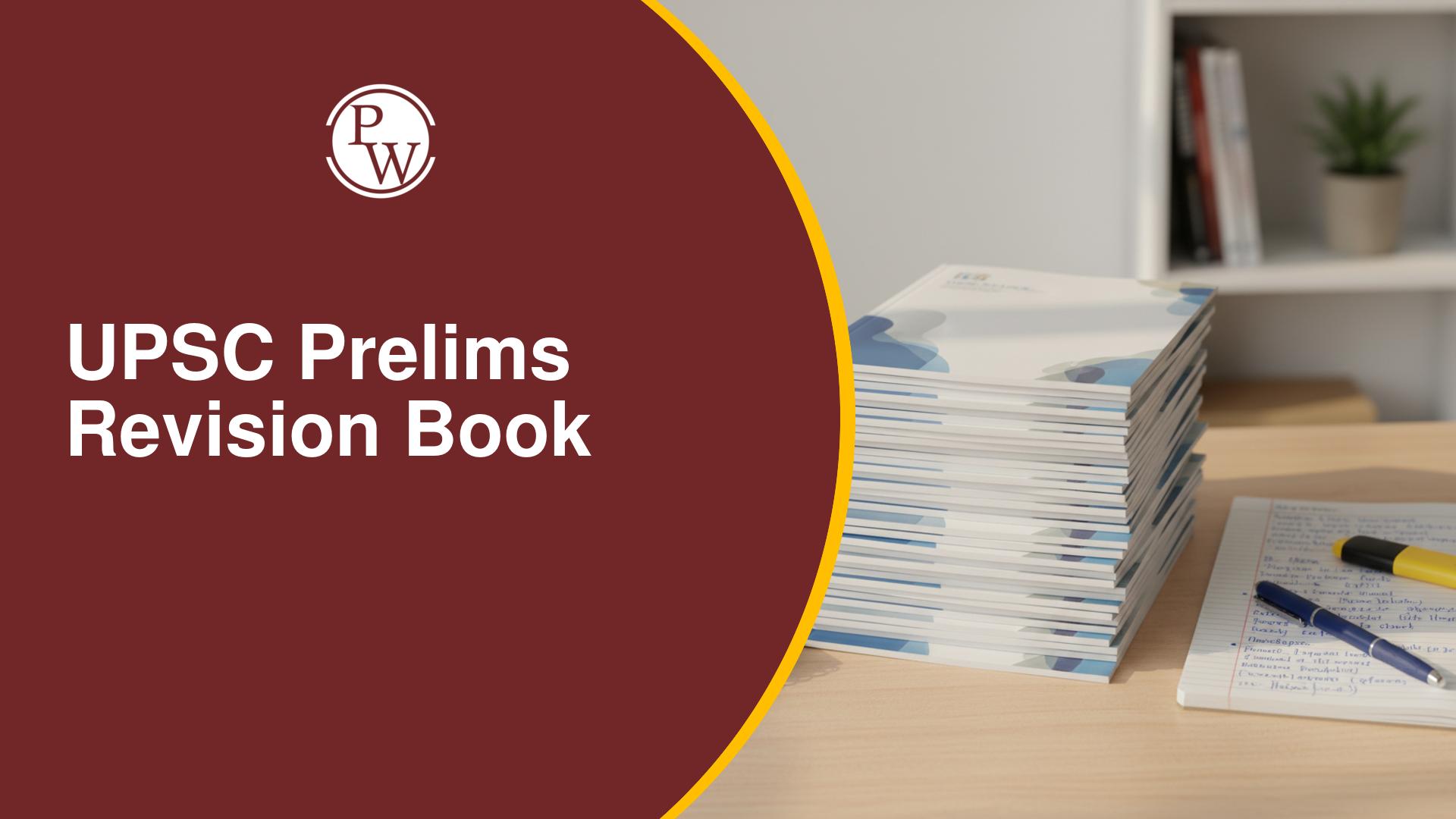
UPSC IES ISS Syllabus 2024: The syllabus for the Indian Economic Service (IES) and Indian Statistical Service (ISS) written exam has been defined by the Union Public Service Commission (UPSC). The UPSC IES ISS Syllabus 2024 can be downloaded from the official website. The UPSC IES ISS exam syllabus is distributed among 6 subjects.
According to the UPSC IES ISS Exam Pattern 2024, both exams will be worth 1000 marks with 6 papers. Following this, an interview or Personality Test (PT) will be conducted worth 200 marks. This article provides the UPSC IES ISS Syllabus 2024 in detail along with the latest exam pattern.UPSC IES ISS Syllabus PDF Download
The UPSC IES ISS Syllabus can be found in the latest UPSC IES ISS Notification PDF 2024. This notification will be released on ‘upsc.gov.in’ in which the commission will mention the subjects, topics, subtopics, duration and marks assigned to each paper for both services. The link to the UPSC IES ISS Syllabus PDF will be active on 10 April 2024 on the official website.UPSC IES ISS Syllabus 2024 Common Papers
The UPSC IES and UPSC ISS exams are held simultaneously. The only difference is subjective papers that will be unique to each service. There 4 specialist papers and two common papers , named General English and General Studies worth 100 marks each. The UPSC IES ISS Syllabus 2024 for common papers is as follows:| UPSC IES ISS Syllabus 2024 - Common Papers | |
| Subject/Paper | Topics |
| General English |
|
| General Studies |
|
UPSC Indian Economic Service Syllabus 2024
The UPSC Indian Economic Service Syllabus 2024 is mainly divided into four subjects viz. General English, General Studies, General Economics (I, II, and III) and Indian Economics. Of these General Economics I, II, and III and Indian Economics papers are worth 200 marks each. The paper-wise UPSC IES ISS syllabus for the Indian Economic Service exam is as follows:UPSC IES General Economics I Syllabus
In the UPSC IES ISS syllabus PDF the General Economics subject is specific to the IES exam. The General Economics I paper of the Indian Economic Service exam is divided into Part A and Part B. The syllabus is given below for this paper:| UPSC IES Syllabus - General Economics I | |
| PART A | |
| 1. Theory of Consumer’s Demand |
|
| 2. Theory of Production |
|
| 3. Theory of Value |
|
| 4. Theory of Distribution |
|
| 5. Welfare Economics |
|
| PART B: Quantitative Methods in Economics | |
| 1. Mathematical Methods in Economics |
|
| 2. Statistical and Econometric Methods |
|
UPSC IES General Economics II Syllabus
The General Economics II consists of topics like National Income, theories of economics, employment, growth and development, etc. Here is the detailed syllabus of the UPSC IES Paper 4 i.e. General Economics II:| UPSC IES Syllabus - General Economics II | |
| Topics | Subtopics |
| 1. Economic Thought |
|
| 2. Concept of National Income and Social Accounting |
|
| 3. Theory of Employment, Output, Inflation, Money and Finance |
|
| 4. Financial and Capital Market |
|
| 5. Economic Growth and Development |
|
| 6. International Economics |
|
| 7. Balance of Payments |
|
| 8. Global Institutions |
|
UPSC IES General Economics III Syllabus
The UPSC IES Syllabus for Paper 5, which is General Economics III, covers the areas of public finance, industrial economics, environmental economics, markets and planning, etc. is provided in the below table:| UPSC IES Syllabus - General Economics III | |
| Topics | Subtopics |
| 1. Public Finance |
|
| 2. Environmental Economics |
|
| 3. Industrial Economics |
|
| 4. State, Market, and Planning |
|
UPSC IES Indian Economics Syllabus
The syllabus of Paper 6 which completely deals with Indian Economics covers a wide range of related topics such as the history of planning, budgeting, agriculture, poverty, foreign trade, etc. Candidates must have a good knowledge of the below mentioned topics:| UPSC IES Syllabus - Indian Economics | |
| Topics | Subtopics |
| 1. History of development and planning |
|
| 2. Federal Finance |
|
| 3. Budgeting and Fiscal Policy |
|
| 4. Poverty, Unemployment and Human Development |
|
| 5. Agriculture and Rural Development Strategies |
|
| 6. India’s experience with Urbanisation and Migration |
|
| 7. Industry: Strategy of industrial development |
|
| 8. Labour |
|
| 9. Foreign Trade |
|
| 10. Money and Banking |
|
| 11. Inflation |
|
UPSC IES Exam Pattern 2024
Candidates should understand the exam pattern of their target paper along with the detailed UPSC IES ISS Syllabus 2024. The nature of the exam is descriptive type in UPSC IES. Candidates are expected to attempt 6 papers worth 1000 marks in total.- Paper I and Paper II are worth 100 marks each.
- Papers III to VI are worth 200 marks each.
- Candidates have 3 hours to complete each paper on the given date.
- There will be two papers on the same day in two shifts.
| UPSC IES Exam Pattern 2024 | ||
| Subject | Maximum Marks | Time Allowed |
| General English | 100 | 3 Hours |
| General Studies | 100 | 3 Hours |
| General Economics I | 200 | 3 Hours |
| General Economics II | 200 | 3 Hours |
| General Economics III | 200 | 3 Hours |
| Indian Economics | 200 | 3 Hours |
UPSC Indian Statistical Service Syllabus 2024
The Indian Statistical Service exam consists of 6 papers in total. Apart from two common papers with IES, the UPSC ISS exam has four papers on Statistics with varied subjects and the nature of the exam. Statistics I & II have objective-type questions whereas Statistics III & IV are subjective in nature. The UPSC IES ISS syllabus for the ISS exam is as follows:UPSC ISS Syllabus for Objective Papers
Statistics I and Statistics II have 80 questions each worth 200 marks. Candidates are allowed 120 minutes or 2 hours to complete these papers. Both papers are held on the same day in different shifts. UPSC ISS subjects that will be asked in objective papers are provided here:| UPSC ISS Syllabus Overview - Objective Papers | |
| Statistics I | Statistics II |
|
|
UPSC ISS Syllabus for Descriptive Papers
The Statistics III and IV have descriptive type 50% short answer questions and 50% long answer/comprehension questions. Candidates must attempt at least one short answer and one long answer question from each section. Here is the UPSC ISS syllabus for both papers:| UPSC ISS Syllabus Overview- Descriptive Papers | |
| Statistics III | Statistics IV |
|
|
UPSC ISS Exam Pattern 2024
The Indian Statistical Service exam pattern is slightly different from the UPSC IES exam. While there are four statistics papers, the nature and type of questions differ for each. According to the UPSC IES ISS syllabus PDF, Statistics I and II are objective in nature, and Statistics III and IV are descriptive in nature.- The duration o f Statistics I & II papers is 2 hours and for the remaining papers, it is 3 hours.
- All Statistics papers are worth equal marks i.e. 200 irrespective of the nature of the exam.
- There are 80 multiple choice type questions in Statistics I & II papers.
- There are 7 sections in Statistics IV from which candidates must select any 2 sections.
| UPSC ISS Exam Pattern 2024 | |||
| Subject | Nature of Exam | Maximum Marks | Time Allowed |
| General English | Descriptive | 100 | 3 Hours |
| General Studies | Descriptive | 100 | 3 Hours |
| Statistics I | Objective | 200 | 2 Hours |
| Statistics II | Objective | 200 | 2 Hours |
| Statistics III | Descriptive | 200 | 3 Hours |
| Statistics IV | Descriptive | 200 | 3 Hours |
UPSC IES ISS Syllabus 2024 FAQs
Who prepares the UPSC IES ISS 2024 syllabus?
The Union Public Service Commission is authorized to prepare the UPSC IES ISS 2024 syllabus on behalf of the Ministry of Statistics and Programme Implementation.
What is the structure of the UPSC ISS exam?
The UPSC ISS exam has 6 papers, of these papers Statistics I & Statistics II are objective types of 2 hours duration and the remaining are descriptive types of 3 hours duration.
How many papers are there in the UPSC IES exam?
There are 6 papers in a total of 3 hours duration in the UPSC IES exam.
Is there any negative marking in the UPSC IES ISS exam?
Yes, there is a negative marking in the UPSC ISS exam for Statistics I & Statistics II objective papers.
What are the total marks of the UPSC IES ISS exam?
The written exam of UPSC IES ISS is worth 1000 marks and the interview is worth 200 marks.
Talk to a counsellorHave doubts? Our support team will be happy to assist you!

Free Learning Resources
PW Books
Notes (Class 10-12)
PW Study Materials
Notes (Class 6-9)
Ncert Solutions
Govt Exams
Class 6th to 12th Online Courses
Govt Job Exams Courses
UPSC Coaching
Defence Exam Coaching
Gate Exam Coaching
Other Exams
Know about Physics Wallah
Physics Wallah is an Indian edtech platform that provides accessible & comprehensive learning experiences to students from Class 6th to postgraduate level. We also provide extensive NCERT solutions, sample paper, NEET, JEE Mains, BITSAT previous year papers & more such resources to students. Physics Wallah also caters to over 3.5 million registered students and over 78 lakh+ Youtube subscribers with 4.8 rating on its app.
We Stand Out because
We provide students with intensive courses with India’s qualified & experienced faculties & mentors. PW strives to make the learning experience comprehensive and accessible for students of all sections of society. We believe in empowering every single student who couldn't dream of a good career in engineering and medical field earlier.
Our Key Focus Areas
Physics Wallah's main focus is to make the learning experience as economical as possible for all students. With our affordable courses like Lakshya, Udaan and Arjuna and many others, we have been able to provide a platform for lakhs of aspirants. From providing Chemistry, Maths, Physics formula to giving e-books of eminent authors like RD Sharma, RS Aggarwal and Lakhmir Singh, PW focuses on every single student's need for preparation.
What Makes Us Different
Physics Wallah strives to develop a comprehensive pedagogical structure for students, where they get a state-of-the-art learning experience with study material and resources. Apart from catering students preparing for JEE Mains and NEET, PW also provides study material for each state board like Uttar Pradesh, Bihar, and others
Copyright © 2026 Physicswallah Limited All rights reserved.









